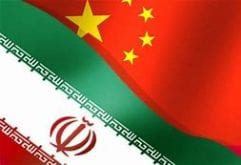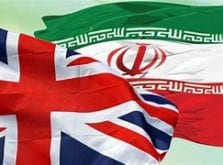Al-Monitor – Talks between Iran and world powers in Vienna are now in what many observers have deemed their final stretch. But it’s far from a done deal, and US officials are warning that mere weeks remain before the Joint Comprehensive Plan of Action’s (JCPOA) original nonproliferation benefits are lost.
Naysan Rafati, the International Crisis Group’s senior Iran analyst, says “the room for compromise is there but narrowing, partly because of the time crunch.” As negotiators meet for the eighth round of talks, here’s a look at some of their core areas of disagreement:
Scope of sanctions relief: It remains to be seen how many of the designations imposed under former President Donald Trump’s “maximum pressure” campaign would be lifted in a final deal. An Iran official told Reuters that Iran wants some 300 additional sanctions withdrawn. But the Biden administration has been clear that certain non-nuclear sanctions will remain in place, such as those related to human rights violations and terrorism. In addition to disagreements over sanctions relief, Iran has also called for a US commitment that it won’t reimpose sanctions down the line.
Guarantee beyond 2025: In another nonstarter for Washington, Tehran has insisted that the potential pact contain a legal assurance that America won’t again abandon the deal. The Biden administration says it will uphold its end of the bargain but that it has no way of binding future administrations to a revived JCPOA. In an interview with the Financial Times this week, Iranian Foreign Minister Hossein Amir-Abdollahian suggested that Congress at least make a “political statement” demonstrating its commitment to the battered deal.
Nuclear rollback: A challenge for negotiators will be maximizing the deal’s nonproliferation benefits relative to where Iran’s nuclear program is today, said Rafati. Some of those issues are easier to quantify, such as capping Tehran’s uranium enrichment level and stockpile. But accounting for the knowledge gained, especially given the R&D conducted with advanced centrifuges and uranium metal, is a different story. “The puzzle becomes how far you can roll back relative to where they are in 2022,” Rafati said.
What to watch: The International Atomic Energy Agency will hold its next Board of Governors meeting beginning on March 7 in what Rafati says could mark an “inflection point” in the Vienna negotiations. Much depends on the watchdog’s quarterly report. If the report indicates a slowdown in Iran’s nuclear advances, that could “put a few seconds back on the clock,” Rafati says.

 Shabtabnews In this dark night, I have lost my way – Arise from a corner, oh you the star of guidance.
Shabtabnews In this dark night, I have lost my way – Arise from a corner, oh you the star of guidance.


